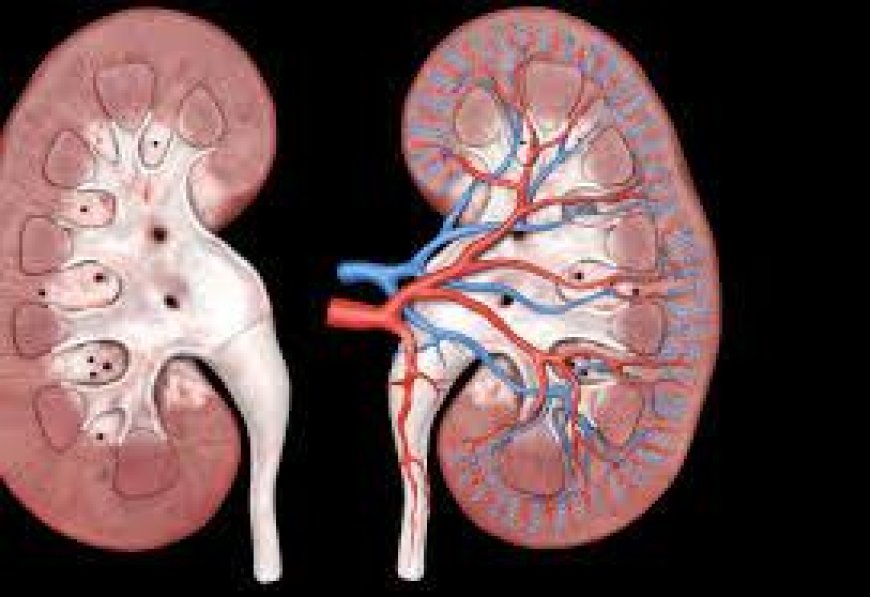Diabetic Nephropathy Symptoms, Causes, and Diagnosis from chughtai lab
Learn about diabetic nephropathy, its symptoms, causes, diagnosis, and prevention. Discover tips to manage this diabetes-related kidney condition effectively

Understanding Diabetic Nephropathy
Diabetic nephropathy, also known as diabetic kidney disease, is a serious complication of diabetes. It occurs when the kidneys are damaged due to prolonged high blood sugar levels. This condition can lead to kidney failure if not managed properly.
The importance of early detection cannot be overstated. Identifying the signs early can prevent severe complications and improve quality of life.
Symptoms of Diabetic Nephropathy
Early Symptoms
In the initial stages, diabetic nephropathy might not present noticeable symptoms. However, some subtle signs include:
· Frequent urination
Advanced Symptoms
As the condition progresses, more pronounced symptoms can develop, such as:
· Swelling in the legs, feet, or hands (edema)
· Foamy or bubbly urine (a sign of protein leakage)
· Persistent high blood pressure
Causes of Diabetic Nephropathy
Diabetes as the Root Cause
Both Type 1 and Type 2 diabetes are primary contributors to diabetic nephropathy. Chronic high blood sugar damages the tiny blood vessels in the kidneys, impairing their filtering ability.
Other Contributing Factors
· Poorly managed diabetes
· Uncontrolled high blood pressure
· Genetic predisposition to kidney disease
Risk Factors
Several factors increase the likelihood of developing diabetic nephropathy, including:
· Family history of kidney disease
· Long-standing diabetes
· Unhealthy lifestyle choices, such as smoking and poor diet
Diagnosis of Diabetic Nephropathy
Medical History and Symptoms
Doctors begin with a review of your medical history and current symptoms.
Lab Tests
· Urine Tests: Detect protein levels (microalbuminuria).
· Blood Tests: Measure creatinine levels and estimate glomerular filtration rate (GFR) to assess kidney function.
Imaging and Biopsy
In some cases, imaging or a kidney biopsy may be necessary for a definitive diagnosis.
Complications of Untreated Diabetic Nephropathy
If left unmanaged, diabetic nephropathy can lead to:
Chronic kidney disease (CKD)
End-stage renal disease (ESRD), requiring dialysis or transplantation
· Preventing Diabetic Nephropathy
· Effective Diabetes Management
· Regular blood sugar monitoring
· Consistent use of prescribed medications
· Healthy Lifestyle Choices
· Adopting a balanced diet
· Engaging in regular physical activity
· Avoiding smoking and excessive alcohol consumption
Treatment Options for Diabetic Nephropathy
· Medications: ACE inhibitors and ARBs help control blood pressure and protect the kidneys.
· Advanced Treatments: Dialysis or kidney transplantation may be necessary in severe cases.
When to Consult a Doctor
It's vital to seek medical advice if you notice symptoms like swelling, foamy urine, or worsening blood pressure. Early intervention can make a significant difference.
Living with Diabetic Nephropathy
Managing a chronic condition like diabetic nephropathy can be challenging. Staying informed, adhering to treatment plans, and seeking support from healthcare providers or groups can make the journey easier.
Conclusion
Diabetic nephropathy is a serious yet preventable complication of diabetes. Early detection, effective management of blood sugar and blood pressure, and lifestyle modifications are key to minimizing its impact. With timely care and a proactive approach, it’s possible to lead a healthy life despite this condition.
FAQs
1. What are the first signs of diabetic nephropathy?
The early signs include frequent urination, fatigue, and mild swelling in the extremities.
2. Can diabetic nephropathy be reversed?
While it may not be fully reversible, early intervention can slow progression and improve kidney function.
3. How long does it take for diabetic nephropathy to develop?
It typically develops after 10-15 years of poorly controlled diabetes but varies from person to person.
4. What dietary changes are recommended?
A low-sodium, low-protein diet rich in fresh fruits and vegetables is often suggested. Consult a dietitian for a personalized plan.
5. Are there any new treatments for diabetic nephropathy?
Emerging treatments like SGLT2 inhibitors show promise in managing diabetic nephropathy, but consult your doctor for the latest options.
What's Your Reaction?

























